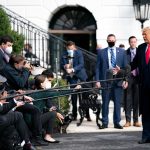President-elect Donald Trump is once again at the center of a legal whirlwind, with his legal team pushing for a delay in his sentencing related to a case involving Stormy Daniels. The stakes are high as the clock ticks down to January 10, just ten days before his inauguration. The drama unfolds in a New York courtroom where Trump faces a felony conviction for falsifying business records, a case that many, including seasoned commentators, deem weak at best. However, the legal battles seem far from over, and the courtroom theatrics continue to capture the nation’s attention.
The anticipation builds as everyone awaits Judge Juan Merchan’s response to this last-minute plea from Trump’s legal team. The judge has suggested that he will issue an unconditional discharge, which means Trump may avoid further penalties. This situation has sparked discussions about the judge’s motivations. Is he simply doing his job, or is there something more at play here? The political implications of such a high-profile case cannot be ignored.
Eyebrows were raised when the prosecution called White House staffers to testify, a move that some perceived as overstepping. One legal expert pointed out that the case against Trump doesn’t rest on his presidential actions but rather on allegations that seem more like a political tactic than a legitimate legal argument. This detail could very well serve as a double-edged sword for the prosecution, leading some to believe they’ve compromised their case.
Critics of the prosecution argue that the intent behind these legal maneuvers is not strictly about upholding the law but about branding Trump as a convicted felon. This branding strategy could play into the media narrative and campaign tactics as Trump prepares for his upcoming election bid. The idea here is simple—paint Trump with a criminal brush to damage his political image. Yet, as history has shown, such tactics can backfire spectacularly, especially if the public perceives the legal actions as politically motivated rather than based on evidence and facts.
As media machines churn out analysis and speculation, it’s evident that this legal saga is far from over. The strategy of weaponizing the courtroom for political gain is risky and may lead to unintended consequences for those pursuing it. The election landscape is ever-changing, and voters may not respond as expected to negative campaign tactics, especially when they’re perceived to be fueled by legal theatrics rather than genuine allegations. Thus, while this legal battle rages on in the courts, the real drama may unfold on the campaign trail, where public perception could determine the outcome far more than any judge’s ruling.




